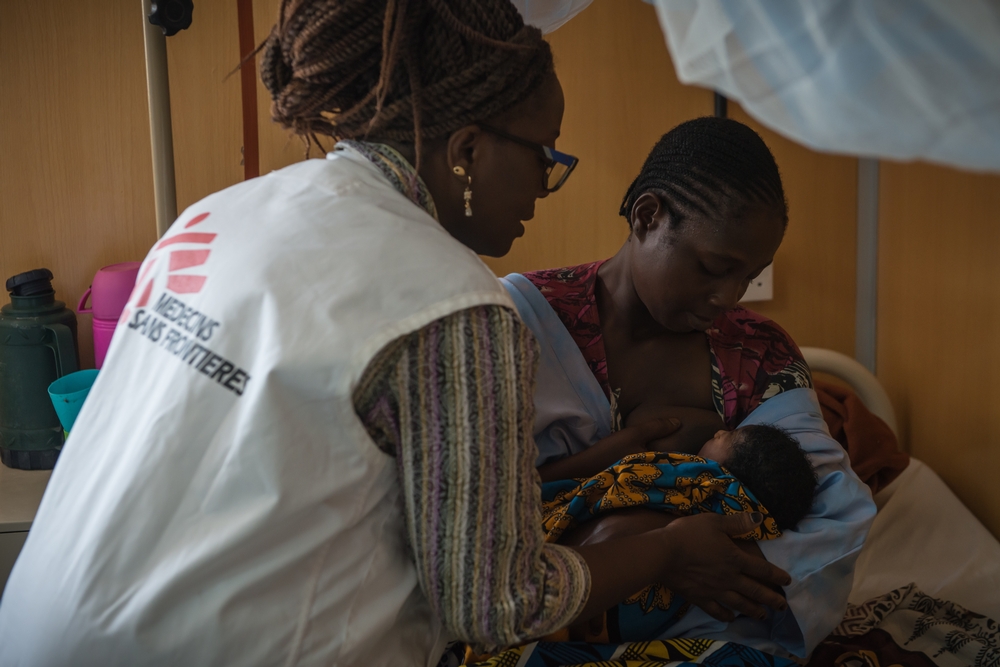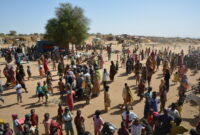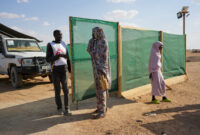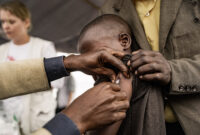Maternal Health
Reproductive health care is an integral part of the medical care Doctors Without Borders/Médecins Sans Frontières (MSF) provides, including in emergencies. Our maternal health programs in more than 25 countries focus on reducing maternal and infant mortality through pregnancy and prenatal consultations, emergency obstetric care, postnatal follow-up, and access to family planning services and safe abortion care.
Our MSF staff members have seen mothers who have walked great distances in dangerous circumstances to make sure their children get vaccinations and treatment, and who have risked everything, including rejection by their husbands, to prevent transmitting HIV to their unborn babies. These are remarkably strong women and they are anything but victims. Yet in spite of the huge burdens they shoulder, they rarely possess the power to decide when they themselves can get lifesaving care.
Many women across the world give birth without medical assistance, massively increasing the risk of complications or death. Every day on average 830 women die from pregnancy-related causes. Most of these deaths are preventable.

What causes maternal death?
The most common complications causing maternal death, accounting for nearly 75 percent of all maternal deaths, are:
- postpartum haemorrhage
- infection
- eclampsia
- complications from delivery
- unsafe abortion
Postpartum hemorrhage
Excessive bleeding, or postpartum hemorrhage, can happen following a complicated delivery.
Often it is caused by uterine atony, the inability of the uterus to contract. Normally after delivery the contraction of the uterus should stop the bleeding that occurs after separation of the placenta. Due to reasons like an incomplete separation of the placenta, uterine atony occurs and bleeding continues.
A woman can lose half a litre of blood in one minute and bleed to death rapidly unless action is taken quickly to stop the bleeding.
Infections
Reproductive tract infections (RTIs) can be contracted during pregnancy or in unhygienic conditions during delivery.
RTIs can cause inflammation of the uterus, or pelvic inflammatory disease, which can eventually cause maternal death. RTI symptoms include fever, shivering and abdominal pain.
Pre-eclampsia
Pre-eclampsia is a disorder which can occur during pregnancy, characterized by high blood pressure and protein in the urine.
Without help, pre-eclampsia can lead to eclampsia – one of the main causes of maternal deaths worldwide.
Eclampsia can lead to a woman presenting with life-threatening complications, such as convulsions, as well as swelling, sudden weight gain, headaches and changes in vision.
Complications from delivery
Obstructed labour can occur if the baby’s head is too large or the position is abnormal, blocking passage through the birth canal.
When a mother is malnourished or is young and therefore has an underdeveloped pelvis, the birth canal itself is often not wide enough to accommodate the head of the baby.
An obstructed labour can then cause a prolonged labour, defined as one lasting for longer than 24 hours. Labour of this duration can cause complications such as postpartum hemorrhage.
Unsafe abortion
An unsafe abortion is defined as one performed by someone lacking the necessary skills or one which is done in an unhygienic environment, or both.
An unsafe abortion can lead to infection or hemorrhage and ultimately maternal death.













